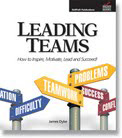If you want to be an effective leader, you must be able to get clear answers to five essential questions—from EACH OF YOUR TEAM MEMBERS.

The first question is the most fundamental:
WHAT DO YOU NEED FROM ME IN ORDER FOR YOU TO DO YOUR BEST WORK?
The second question is built on the first: Do you have the opportunity every day to do what you do best?
As I mentioned in my last post, this series was inspired by a recent Harvard Business Review article by Susan Peppercorn, where she points out the importance of dialogue between workers and leaders (and the lack of those important interactions that exist in many organizations!). She writes:
…these conversations may be too little too late. In a recent Gallup study, more than half of employees surveyed said that no one — including their manager — had talked to them about how they were feeling in their role in their last three months before they quit. And 52% of exiting employees stressed that their manager or organization could have done something to prevent them from leaving their job.
NOTE: If you’re interested in the study, you can access it here: Gallup study
She adds…
…it’s critical to know what motivates employees to stay with an organization and why. Gallup research shows 12 needs managers can meet to improve employee engagement, including:
Prioritizing employee development
Facilitating a sense of purpose
Caring about employees
Considering employee opinions
Focusing on employee strengths
NOTE: If you’re interested in this research, you can access it here: 12 needs
This series focuses on the 5 key questions that are most likely to illuminate the most important needs that employees have in their workplace roles—and how leaders can respond, with relevance and positivity. The end result, of course, is more satisfied workers with higher productivity, and stronger loyalty—with less likelihood of leaving their positions.
The second question builds on the research that Gallup has done in the area of workplace talents or strengths. Marcus Buckingham is well known for his thinking and writing on this topic. His book, Now Discover Your Strengths, is a best-selling resource for anyone who is interested in exploring this area. Other authors, like Mihaly Csikszentmihalyi, have built on this information with additional research and application.
Buckingham offers important insights about workplace talents:
- Everybody has at least one, and most people have more than one.
- When people are doing tasks that utilize a workplace talent, they are much more efficient and productive.
- When people are doing tasks that utilize a workplace talent, they also produce better results.
- When people are doing tasks that utilize a workplace talent, they also experience greater mental focus, engagement, and enjoyment.

So Buckingham applies this insight to workers and leaders. For workers, his advice for long-term success in a career is…
- Focus your time and effort—as much as possible—on doing work that utilizes your workplace talent.
- Spend as little time and effort as possible doing work that does NOT utilize your workplace talent.
- When it comes to learning and training—focus on developing and growing in your workplace talents.
- Avoid trying to be effective at everything.
His advice for leaders echoes the same insight…
As much as possible, assign people work that utilizes their workplace talents.
Of course, this is the point of the second question: Do you have the opportunity every day to do what you do best?
Up Close and Personal
I have written before about one of my management heroes, David Payne. At one point, he was a divisional sales head for a heavy equipment manufacturer here in the U.S. He and his team became increasingly frustrated with the failure of the company factory in their division. The factory was so poorly managed that it was over a YEAR behind in deliveries. It was so bad that David and his team began sending their orders to company factories outside their area and paying for the added delivery fees out of their sales commissions. David finally got fed up enough to call HIS boss to complain. He told his boss, “Even I could do a better job of managing that factory than the current guy in charge!”
So higher-ups took him up on his challenge, and offered him the job!!
The rest is history—under his leadership, the factory became the #1 profit center for the ENTIRE company! The whole story of what he did and how he did it is STUFFED with great management and leadership lessons—I have written about some of them in previous posts.
But here’s an example of ONE THING he did that illustrates the principle of strength-based assignments and roles:
When he took over the management of the factory, he interviewed EVERY EMPLOYEE. Part of his intention was to make sure that everyone had the “right” job—the job that really “fit” their strengths / talents / gifts. He discovered that one of his factory employees was what David called, “one of the most talented and gifted draftsman in our whole company NATION-WIDE.” But David’s predecessor had assigned him to the role of Quality Assurance. The employee HATED doing that job! So David IMMEDIATELY reassigned him to his real passion and strength—drafting the blueprints for the custom made equipment they were designing and manufacturing for their clients.
I asked David, “Who did you get to replace him in Quality Assurance?”
David laughed. He said, “You mean, who did I hire, to be the last pair of eyes to inspect one of our completed vehicles and make sure it is perfect before we ship it to the client who ordered it??? I hired a retired Marine Corp officer!” I laughed, too! I thought to myself, “Yeah…that’s what I call a perfect fit!”
What about YOU????
If you’re in a leadership role and you want to utilize the powerful advantage of work/talent connection, you must:
- Discover which talents each of your direct reports possess.
- Determine which work assignments best “fit” each person’s strengths.
- Make assignments accordingly, as much as possible.
- AND STOP TRYING TO MAKE EVERY PERSON GOOD AT EVERYTHING.
Now… does that mean you ignore weaknesses—either yours or your team members’?
NOT NECESSARILY! But that’s a topic for another blogpost! If you’re interested, you can read about it HERE.
If you want to do a better job of leveraging your strengths and the strengths of your people, give us a call—we have the experience and resources to equip you and your team for greater engagement, stronger morale, better collaboration, and higher productivity!
Until next time… Yours for better leaders and better organizations,
Dr. Jim Dyke – “The Boss Doctor” ™ helping you to BE a better boss and to HAVE a better boss!



